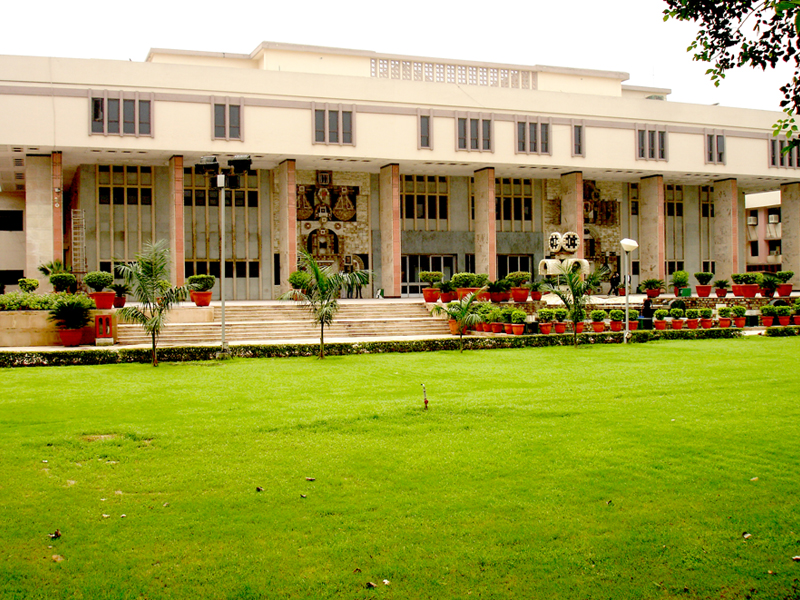The Delhi High Court stated that the court cannot reassess evidence and materials already on record like a first appellate court or replace the opinion of the arbitral tribunal.

The Delhi High Court emphasized that a court cannot reassess evidence like a First Appellate Court or replace the opinion of the Arbitral Tribunal. It also pointed out that the Commercial Court correctly recognized the limited review allowed under Section 34 of the Arbitration and Conciliation Act. The Municipal Corporation of Delhi (MCD) filed an appeal under Section 37(1)(c) of the Act, challenging a decision made by the Commercial Court. The Division Bench, consisting of Justice Vibhu Bakhru and Justice Sachin Datta, stated, “It is clear that the Arbitral Tribunal awarded a claim for lost profits during the extended contract period without any supporting evidence. Therefore, the award is flawed due to obvious illegality.”
Advocate Sanjeev Sagar represented the Appellant, while Advocate Avinash Trivedi represented the Respondent. The disputed award arose from issues related to the construction of a polyclinic in Bawana (Narela Zone, Delhi), carried out by the contractor for a total of Rs 1,41,42,502 as per the Work Order. According to the Agreement, the project was supposed to be finished in eighteen months, but it was significantly delayed, taking over seventy-six months to complete from the original start date.
The contractor argued that he started the work promptly after it was awarded to him. However, the MCD (formerly North Delhi Municipal Corporation) did not keep its promises, which prevented him from finishing the work on time. The disagreements between the parties were taken to arbitration with the Arbitral Tribunal. The Tribunal ruled in favor of the Contractor, awarding him over Rs 50 lakhs. Unhappy that some of his claims were ignored, the Contractor appealed to the Commercial Court. The Court decided that the Contractor was entitled to Rs 28,85,934 and Rs 4,54,708 for Claim Nos. 1 and 2, respectively. The MCD then filed a petition under Section 34 of the A&C Act against the Tribunal’s award in the Commercial Court. During this process, the MCD did not challenge the Tribunal’s decision regarding Claim No. 3, which was about the refund of the security deposit. Nevertheless, the Commercial Court found no issues with the Tribunal’s award.
The Bench stated that the Arbitral Tribunal’s conclusion about the delay in work being caused by the MCD was based on the evidence presented. It emphasized that a court cannot reassess the evidence like the First Appellate Court or replace the Tribunal’s opinion. The Bench agreed with the Commercial Court that the Tribunal’s findings regarding the delay in work (about eleven months from 27.02.2006 to 10.01.2007) due to tree removal and an additional thirty-nine months due to the MCD’s failure to provide necessary drawings should not be challenged in this case.
The Bench also dismissed the MCD’s objection to the escalation award under Section 10C of the GCC, stating that the escalation should be calculated based on the labor costs, and the Contractor’s calculations presented to the Tribunal were not contested. Regarding the Tribunal’s decision to grant loss of profit due to the Contract’s extension, the Bench noted that the damage calculation was incorrect. There was no evidence to show that the Contractor would have made a 10% profit on the work’s value, nor was there proof that the Contractor would have secured another profitable contract if the Contract had not been extended.
The Bench also determined that the Arbitral Tribunal granted a claim for lost profits during the extended period of the Contract without any supporting evidence. Therefore, the award related to the Contractor’s Claim No. 5 was canceled because it was clearly illegal.
Cause Title: Municipal Corporation of Delhi v. Satya Pal Gupta [Neutral Citation: 2024: DHC:8968-DB]
Appearance:
Appellant: Advocates Sanjeev Sagar, Nazia Parveen, JE MukeshKumar Meena
Respondent: Advocate Avinash Trivedi, Anurag Kaushik, Rahul Aggarwal







